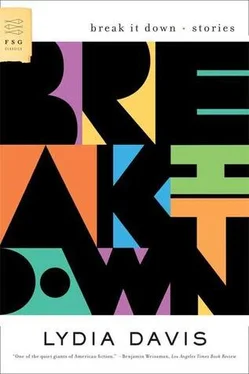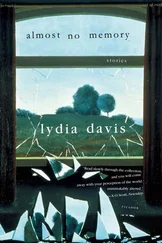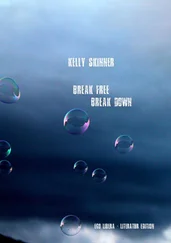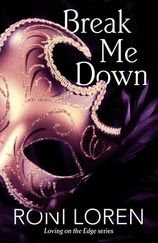Childhood
I was brought up in the violin factory, and when I had a fight with my brothers and sisters we even used to hit one another with violins.
If you think of something, do it
Plenty of people often think, “I’d like to do this, or that.”
The Japanese poet Issa
As a child I was taught to recite the haiku of the Japanese poet Issa, and I have never forgotten them.
Ah, my old home town,
Dumplings that they used to make,
Snow in springtime, too.
Grownups
I cannot live without children. But I love grownups too, because I feel a great sympathy for them—“After all, these people too must die.”
My meeting with Tolstoy
One day, as usual, I set off for my father’s violin factory, where a thousand people were employed. I entered the office, discovered an English typewriter, and started punching the keys.
Just then the chief of the export department came in. “Master Shinichi!”
I lied and said I had merely been touching the keys.
“I see,” he replied simply.
Coward, I thought. Why did I dissemble?
I went to a bookstore, filled with severe anger against myself. Fate led me to a copy of Tolstoy’s Diary . I opened it at random. “To deceive oneself is worse than to deceive others.” These harsh words pierced me to the core.
Several years later when, at twenty-three, I went to Germany to study, the book went with me in my pocket.
A little episode
Here follows a little episode of self-praise.
I was then under the strong influence of Tolstoy.
It was in 1919. I received an unexpected letter in early spring inviting me to join an expedition for biological research. The expedition party on board numbered thirty.
At that time I was inseparable from my violin. It had become a part of me.
Our ship circled the islands. While we walked side by side on the beach, we discovered a most unusual patch of moss of reddish-cobalt color growing high up a sheer cliff.
“I very badly wish to have some of that moss,” said Professor Emoto, looking up anxiously.
“I will get it for you from here,” I boasted, and borrowed a small scoop from a research member.
It turned out to be situated much higher than expected. Heavens! I thought.
I threw the scoop, under the scrutiny of the whole party.
“Oh, wonderful marvelous!” they cried.
As I listened to their applause, I vowed in my heart never again to do such a foolish thing.
I have learned what art really is
Art is not in some far-off place.
Dr. Einstein was my guardian
I took lodgings in the house of a gray-haired widow and her elderly maid. Both the landlady and the maid were hard of hearing so they did not complain no matter how loudly I practiced the violin.
“I shall no longer be able to look after you,” said Dr. M., a professor of medicine, “and so I have asked a friend of mine to keep an eye on you.” The friend turned out to be Dr. Albert Einstein, who later developed the theory of relativity.
A maestro who performed too well
Einstein’s specialties, such as the Bach Chaconne , were magnificent. In comparison with his playing, mine, though I tried to play effortlessly and with ease, seemed to me a constant struggle.
“People are all the same, Madame”
At a dinner party, an old woman wondered how it was that a Japanese could play the violin in such a way as to convey what was German about Bruch.
After a brief interval, Dr. Einstein said quietly, “People are all the same, Madame.”
I was tremendously moved.
I now felt as though I were under direct orders from Mozart
The whole program that evening was Mozart. And during the Clarinet Quintet, something happened to me that had never happened before: I lost the use of my arms. After the performance I tried to clap. My blood burned within me.
That night I couldn’t sleep at all. Mozart had shown me immortal light, and I now felt as though I were under direct orders from Mozart. He expressed his sadness not only with the minor scale but with the major scale as well. Life and death: the inescapable business of nature. Filled with the joy of love, I gave up sadness.
Well done, young man
I was doing what I wanted to do.
Holding his chopsticks in midair, my father looked at me with a sparkle in his eye. “Well done, Shinichi!”
The land was pointed out to me from the road, which ran along the side of the hill above it, and right away I wanted to buy it. If the agent had spoken to me of disadvantages, I would not have heard him at that moment. I was numbed by the beauty of what I saw: a long valley of blood-red vineyards, half flooded with late summer rain; in the distance, yellow fields choked with weeds and thistles and behind them a forest covering a hillside; in the middle of the valley, higher than the fields, the ruin of a farmhouse: a mulberry tree grew up through the broken stone of its garden wall, and nearby, the shadow of an ancient pear tree lay across the carpet of brown, rotted fruit on the ground.
Leaning against his car, the agent said, “There is one room left intact. Inside, it is filthy. They have had animals there for years.” We walked down to the house.
Dung was thick on the tiles of the floor. I felt the wind through the stones and I saw daylight through the lofty roof. None of this discouraged me. I had the papers drawn up that same day.
I had looked forward for so many years to finding a piece of land and building a house on it that I sometimes felt I had not been brought into the world for any other purpose. Once the desire was born in me, all my energies were bent on satisfying it: the job which I got as soon as I could leave school was tiresome and demoralizing, but it brought me more and more money as my responsibilities grew. In order to spend as little as possible I lived a very uneventful life and resisted making friends or enjoying myself. After many years I had enough money to leave my job and begin looking for land. Real estate agents drove me from one property to another. I saw so many pieces of land that I grew confused and no longer knew just what I was looking for. When at last the valley came into sight below me, I felt I had been relieved of a terrible burden.
While the warmth of summer lay over the land, I was content, living in my majestic and soot-blackened room. I cleaned it up, filled it with furniture, and set up a drawing board in one corner, where I worked on plans for rebuilding the house. Looking up from my work, I would see the sunlight on the olive leaves and be lured outdoors. Walking over the grass by the house, I watched, with the tired, expectant eyes of a man who has lived all his life in the city, magpies running through the thyme and lizards vanishing into the wall. In stormy weather, the cypresses by my window bent before the wind.
Then the autumn chill came down and hunters stalked near my house. The explosion of their rifles filled me with dread. Pipes from a sewage-treatment yard in the next field cracked and let a terrible smell into the air. I built fires in my fireplace and was never warm.
One day my window was darkened by the form of a young hunter. The man was wearing leather and carrying a rifle. After looking at me for a moment, he came to my door and opened it without knocking. He stood in the shadow of the door and stared at me. His eyes were milky blue and his reddish beard hardly concealed his skin. I immediately took him for a half-wit and was terrified. He did nothing: after gazing at what was in the room, he shut the door behind him and went away.
Читать дальше












